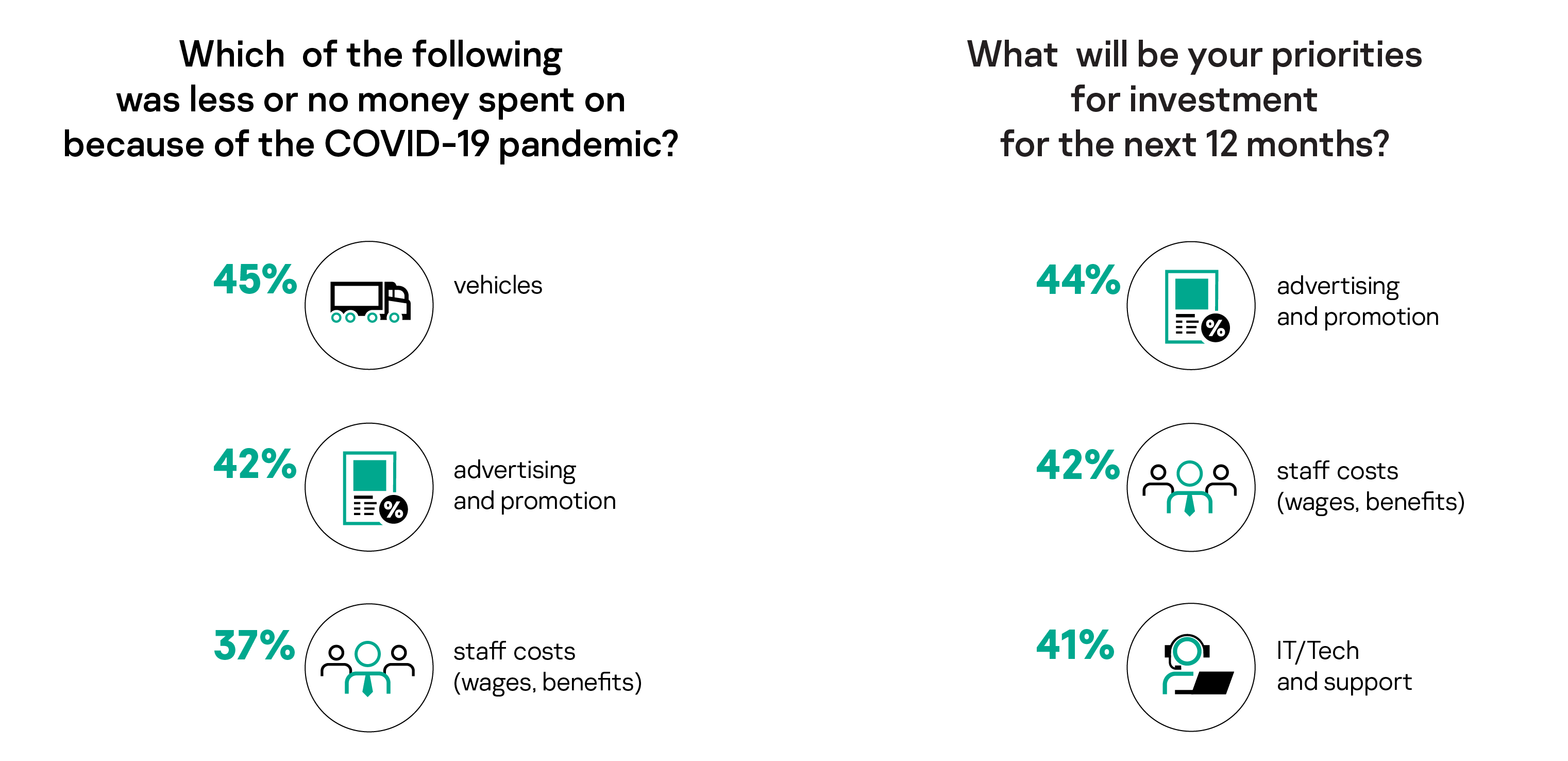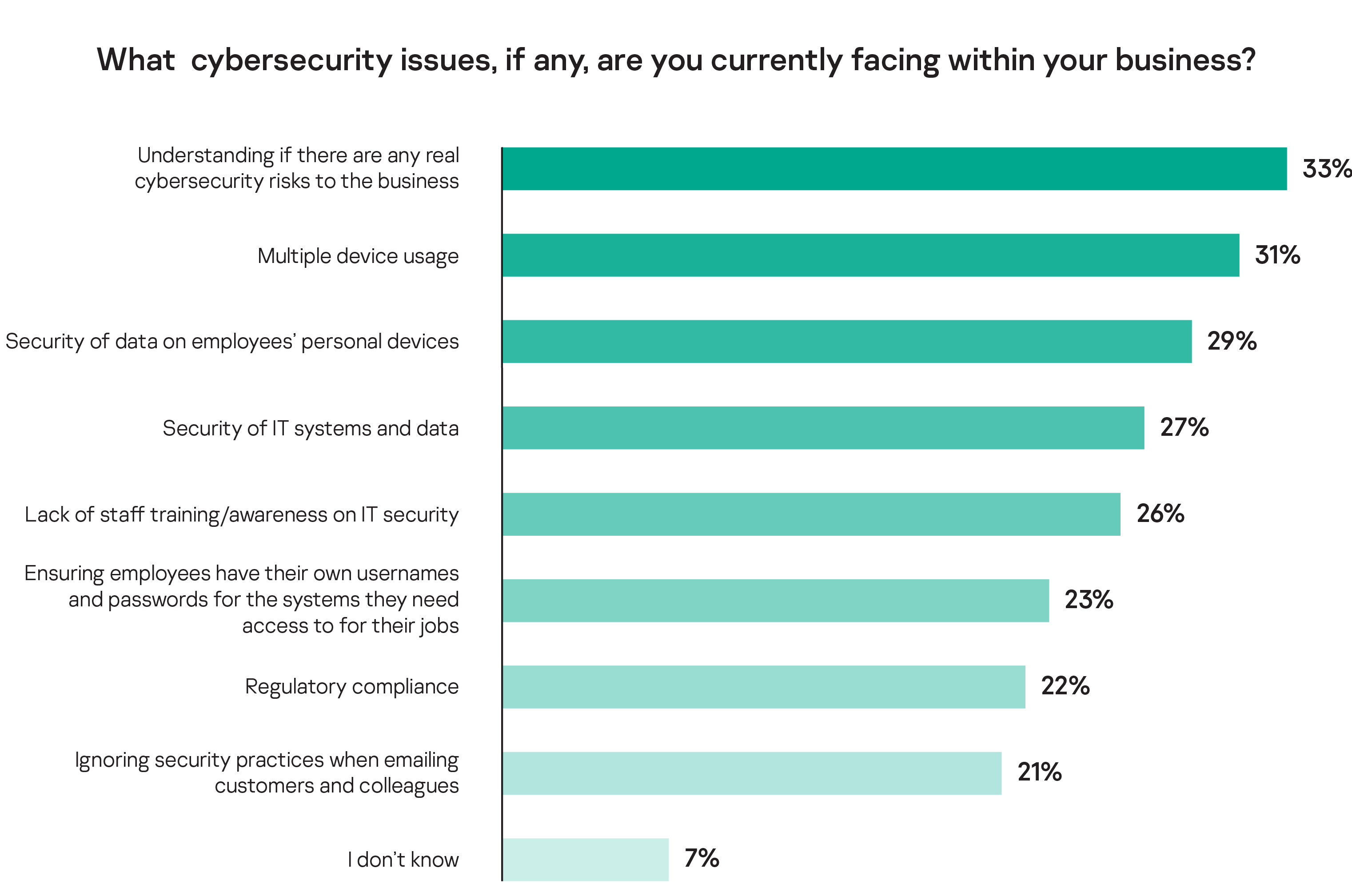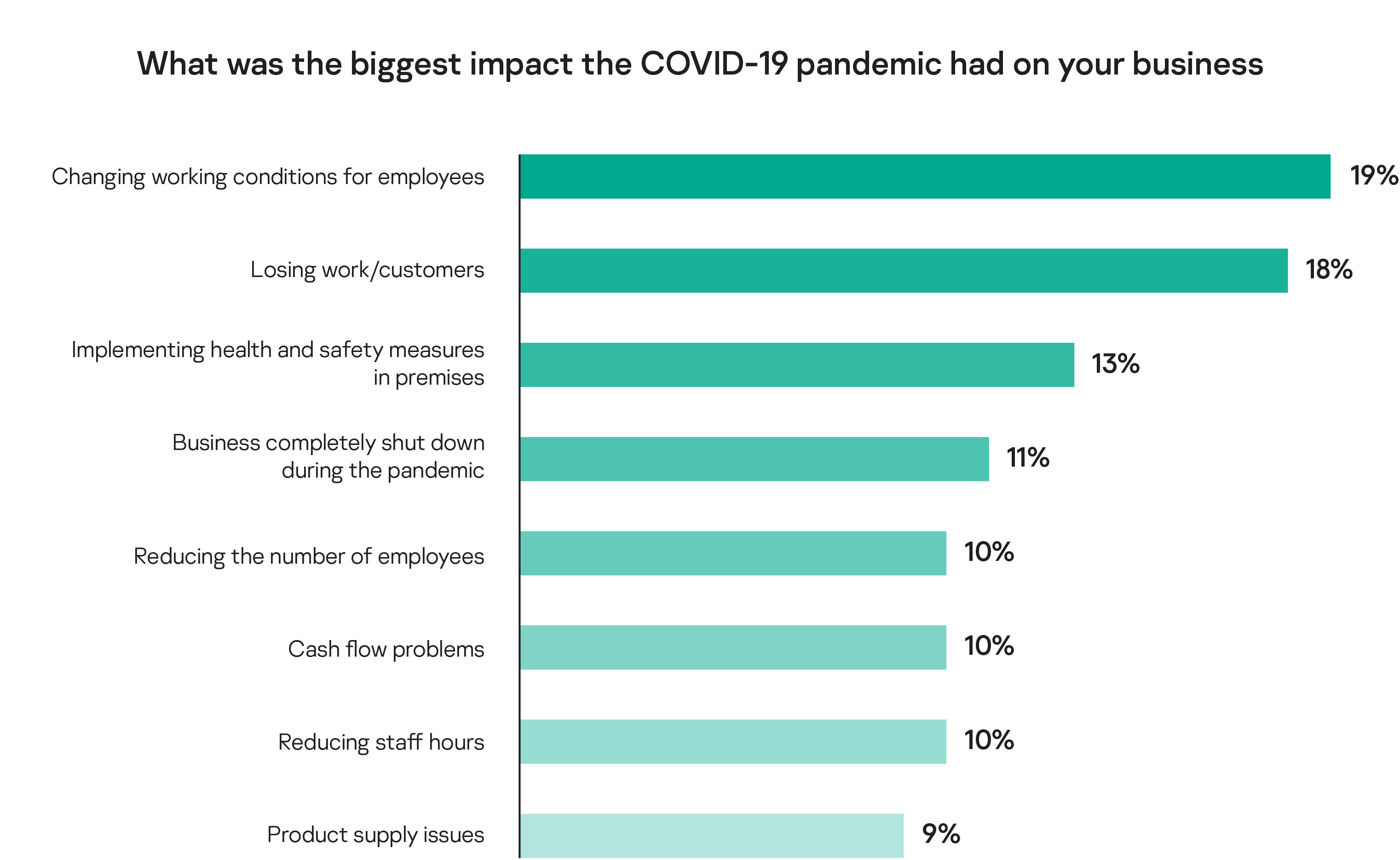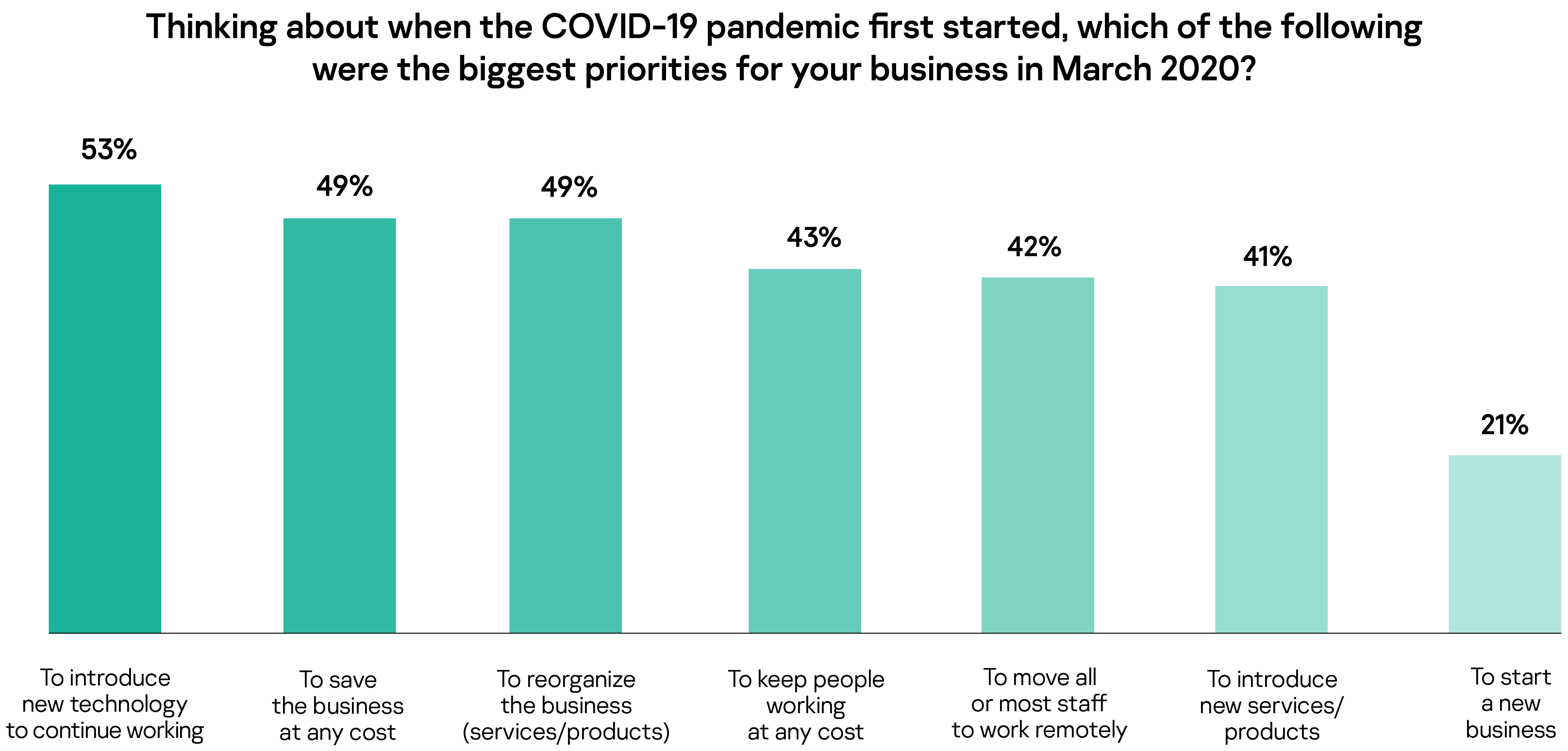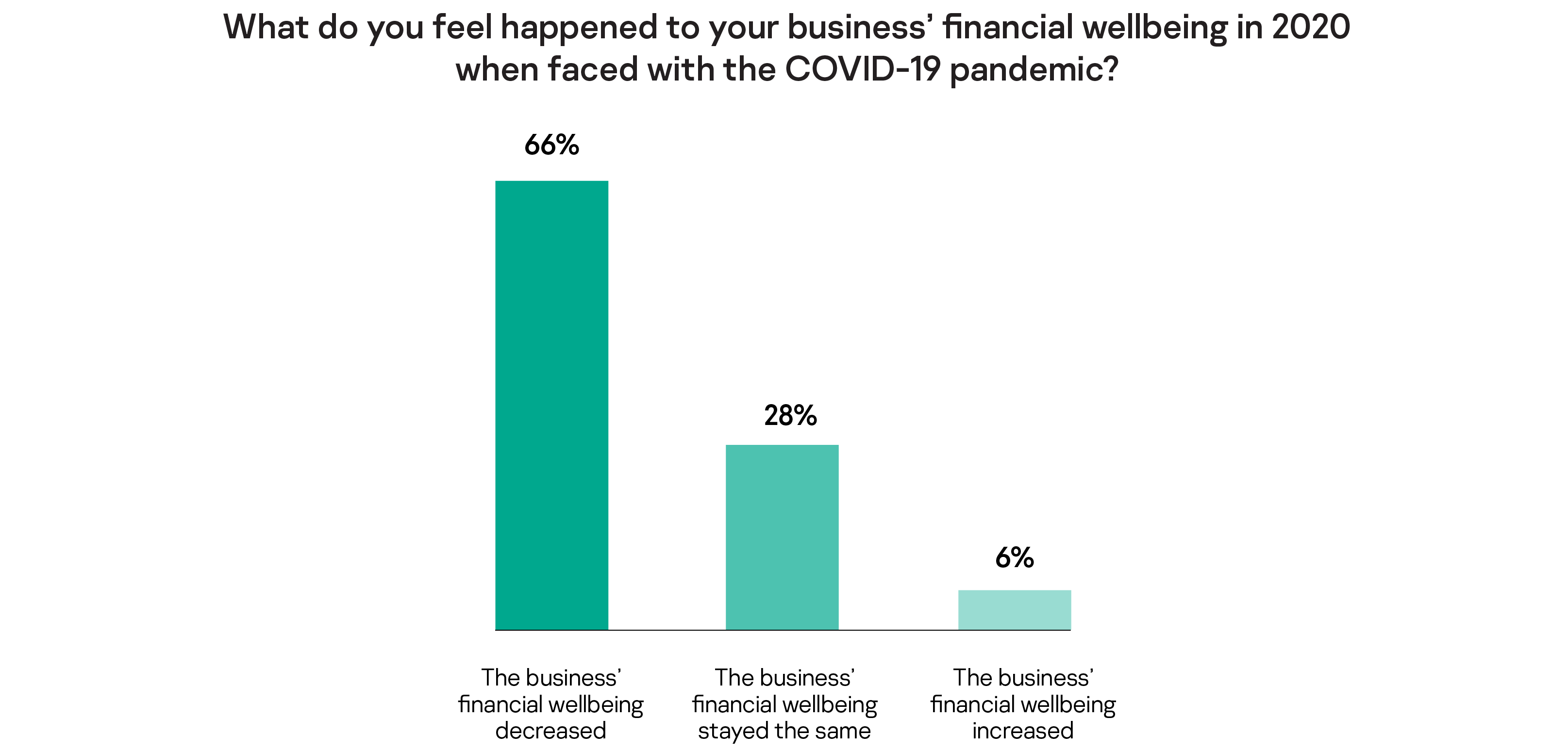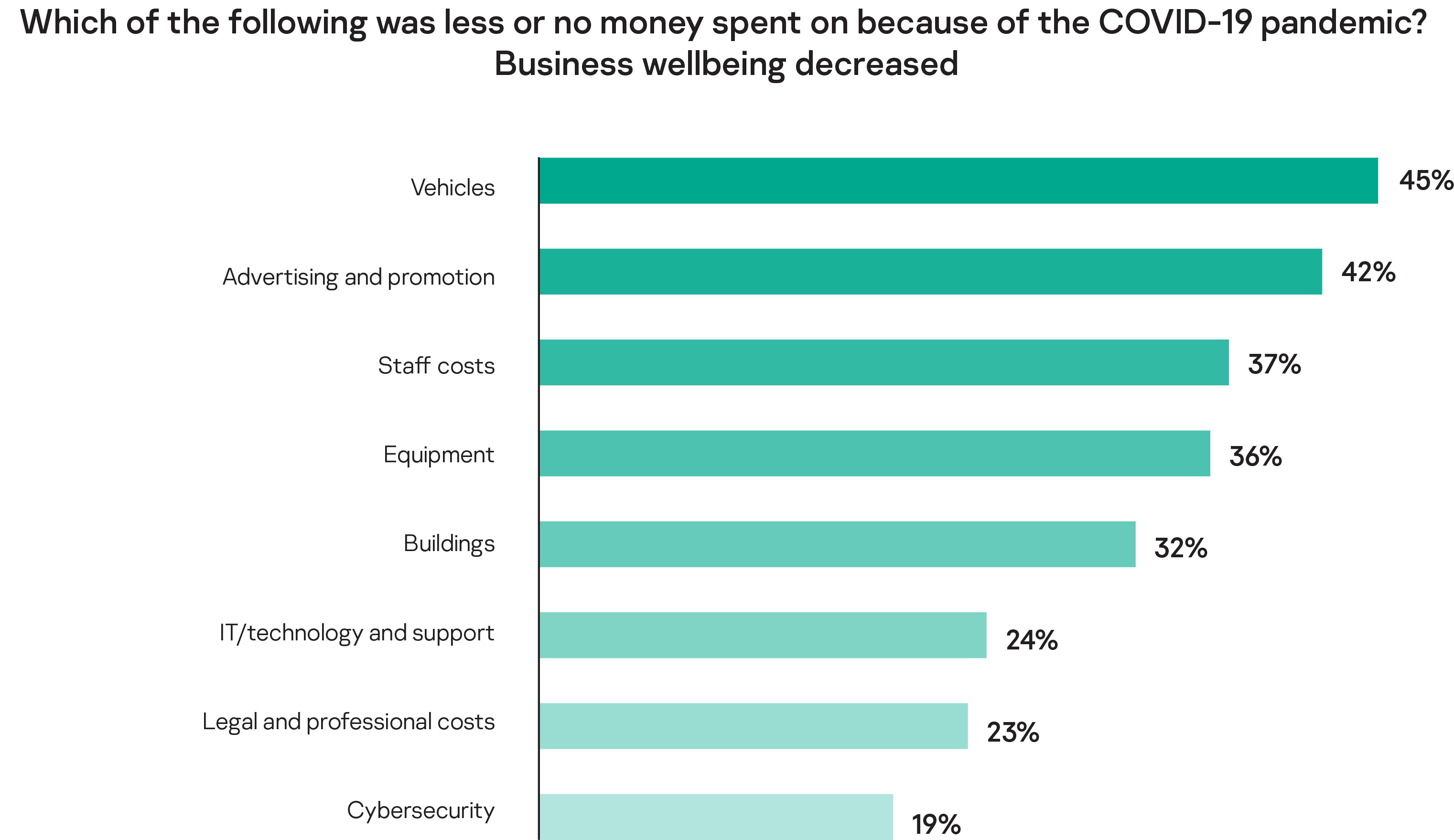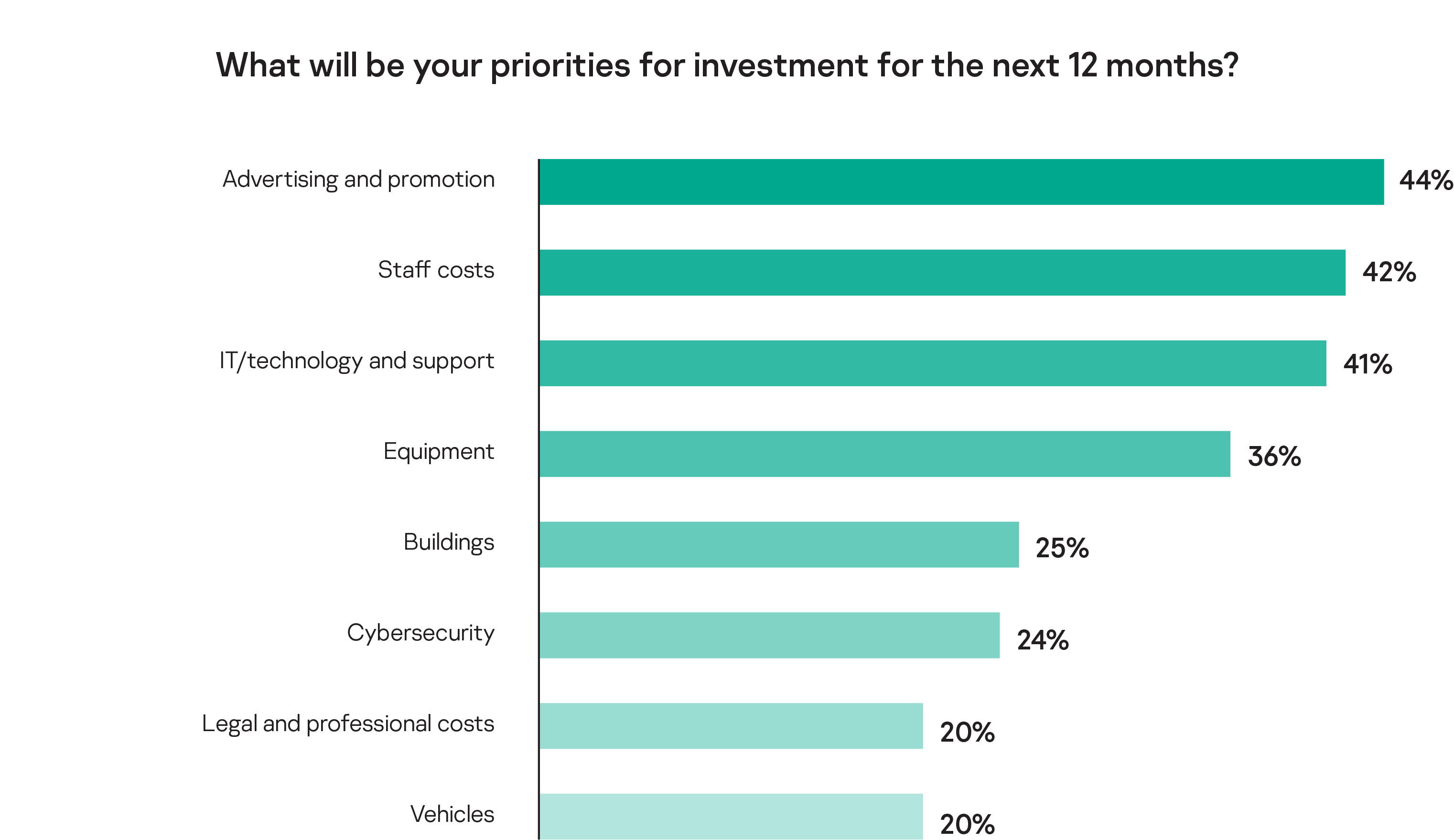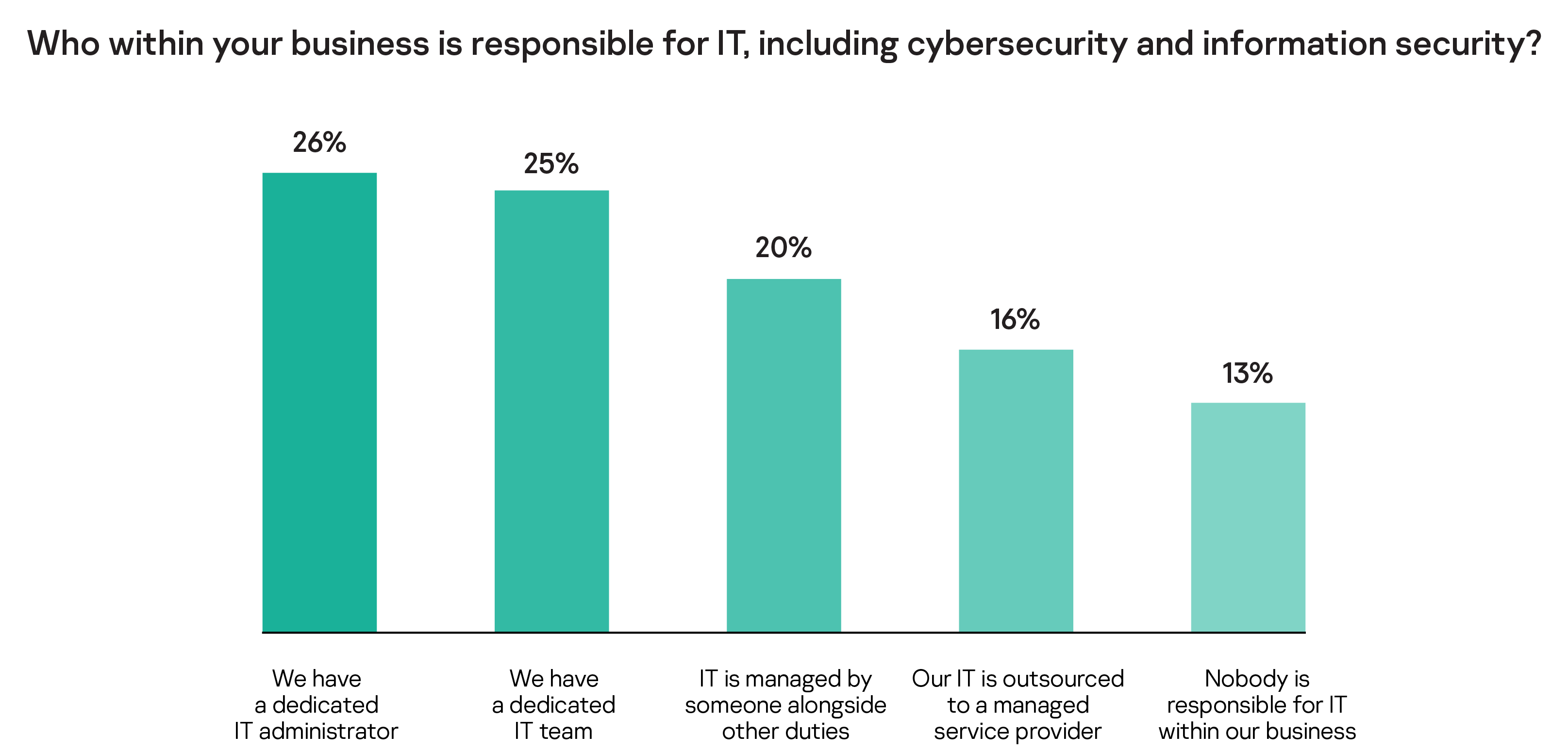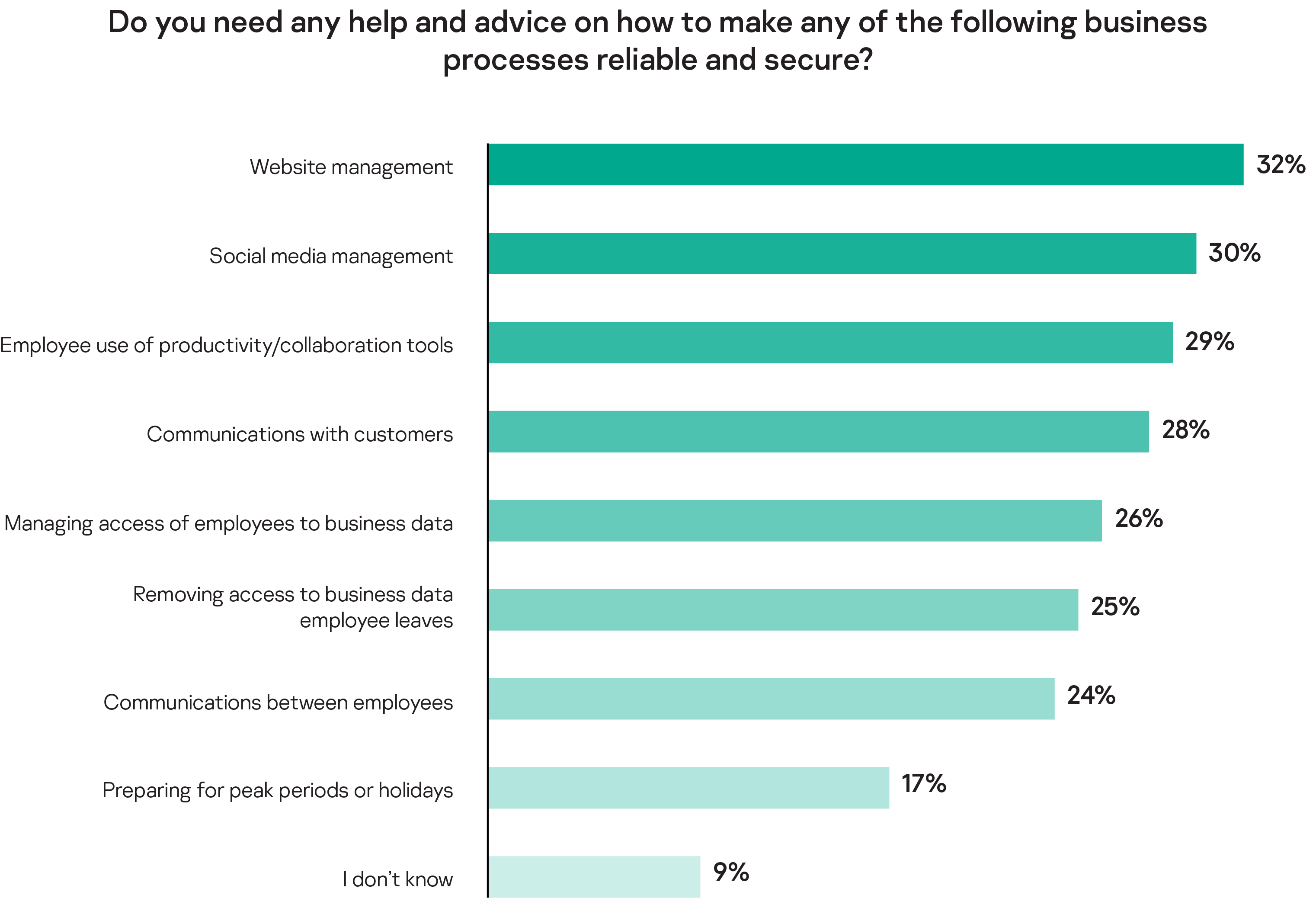Budget cuts, product launches, and new investment priorities

Introduction
Small businesses are the lifeblood of economies around the world. In Europe alone, they account for more than two-thirds of the workforce and more than half of the economic value added.
Small businesses help give birth to new ideas, with market disruptive thinking that helps fuel the digital transformation of the world in which we live.
However, in such a difficult business climate of the global pandemic, it is only natural that certain operations can fade into the background. But when budgets are tight, just what are small businesses prioritizing? What are the areas that are being pushed out of scope? How will budgets be re-allocated when we finally come out of the pandemic? And what are the potential cybersecurity ramifications? This report aims to find out.
Methodology
Kaspersky commissioned Arlington Research, an independent market research agency, to carry out research with 3,150 senior decision makers involved in the budgeting process within companies with less than 250 employees. Research was carried out in 22 countries across North America, Europe, Middle East and Africa, APAC, LatAm, and Russia and CIS, in April-May 2021. Quotas were set to achieve an even spread of respondents across three business sizes (1-49 employees, 50-99 employees, and 100-250 employees) in each country.
Key findings
The pandemic hit small businesses hard:
- 38% cut their budget to survive
And that struggle is likely to continue:
- 52% of small businesses believe current financial difficulties are likely to become permanent
However, many kept on fighting:
- 29% launched new products
- 21% entered new business sectors
How much of a priority is cybersecurity investment for SMBs?
- 38% disagree that cybersecurity is not a priority for investment
- 47% of SMBs struggle to find money to improve protection from cyber-risks
The top areas where entrepreneurs are spending money in 2021 are:
- Advertising and promotion
- Staffing
- Technology
Small businesses weathering the pandemic
If the pandemic was an epic storm the likes of which no one had ever seen, the last 12 months have been a case of battening down the hatches for many small businesses.
Just like when the weather turns, plans are upended and this has been shown by business strategies being rapidly updated, and proposed expansions put on hold.
The storm took its toll, with two thirds (66%) of small businesses we spoke to saying their overall financial wellbeing decreased during the pandemic. Due to this, almost four-in-ten (38%) admitted to cutting their budget to survive. 35% reduced pay for working hours; over a third (34%) closed physical locations; a quarter (24%) cut their spend on IT and tech support – one-in-five (19%) for cybersecurity and 12% had to lay off staff.
“To help staff, I did not draw a salary for first six months of COVID-19 shut down”
(Consumer services business, USA)
Bad weather is usually a good time to work on your home though and many businesses didn’t shy away from getting their house in order, refining their processes to keep their business running. Over half (53%) said their biggest priority was to embrace new technologies to continue working; three-in-seven (43%) small businesses aimed to keep people working at any cost; while three-in-ten (29%) saw the situation as an opportunity and launched new products or services.
The pandemic hit: how are businesses planning to strike back?
For now, it seems that many businesses are content to play it safe, defend their interests and look for an opening in the financial fight against the pandemic with spending remaining at cautious levels for some time.
“Keep calm and see how the situation develops”
(Business services company, Chile)
Just over half (52%) of small businesses thought that the financial difficulties seen during the past 12 months will likely become permanent, meaning they will always have to pick and choose where to invest available funds in the future.
“It is not contemplated to invest in the 12 months. Why? Credits are owed and the priority is to catch up with the banks”
(Hospitality business, Colombia)
Some are planning to move out of the corner the global crisis has pinned them into though, with over seven-in-ten (71%) small businesses saying they will be reconsidering their investment priorities moving forward. Lingering caution is understandable, as during the pandemic, almost half (45%) of small businesses curbed spending on vehicles, 42% on advertising and promotion of the business, and 37% cut wages and benefits to staff.
Conversely, when it comes to deciding what to spend money on first in the next 12 months, 44% believe advertising and promotion will become an investment priority, followed by 42% on staff costs and 41% in IT and tech support. The reason for this may be a desire to return to pre-pandemic business life in terms of sales, staff retention, and payroll costs. Keeping talented members of their team is particularly important, as 35% of employees considered changing job in light of the pandemic. Despite being slightly less popular than the other two investment priorities, IT and tech support may be listed in recognition of how important companies view reinforcing their digital foundations, with a pandemic-sponsored uptick in remote work and use of clouds services.
Investment priorities for the next 12 months are not equal to what businesses cut budget for:
The attitude towards cybersecurity
The fact that three-in-ten (33%) are not sure if there is a cybersecurity risk to their business underlines the overall feeling that many small businesses don’t think they are a target.
However, their business data, finances and the smooth-running of their organization still demands protection, maybe not from top-notch cyber-gangs but from endless random malware that is ever-present on the global network.
Balancing act: how to keep cybercriminals away, while still making a profit
Small business owners are often tasked with having to deal with everything themselves, like balancing a myriad of spinning plates. Invest too much in keeping the crockery going that represents revenue and it might cause the plate that is IT – and the data held within – to break.
There is not an unlimited pot of money. Small businesses are having to do more, with less – carefully balancing their expenses to keep their heads above water. Even for those cognizant of the need to protect themselves from the latest cyberattacks, sometimes there is a lack of funds available, and they find that other areas of the business are prioritized. Almost half (47%) of small businesses struggle with funding for cybersecurity improvements. This is despite 38% of such organizations disagreeing that cybersecurity was not a priority to receive investment within the business.
“We need help or advice with training employees and raising their efficiency in cybersecurity”
(Finance company, Saudi Arabia)
One thing is clear: whether you are a family-run start-up or a multinational publicly traded organization, it is important to protect your business from the scourge of existing and emerging cyberattacks. Not sure how? Read our quick guide to helping businesses on a low budget to best protect themselves from the latest breed of cyberthreats.
Interested in more in-depth figures on our findings?
Find them below.

